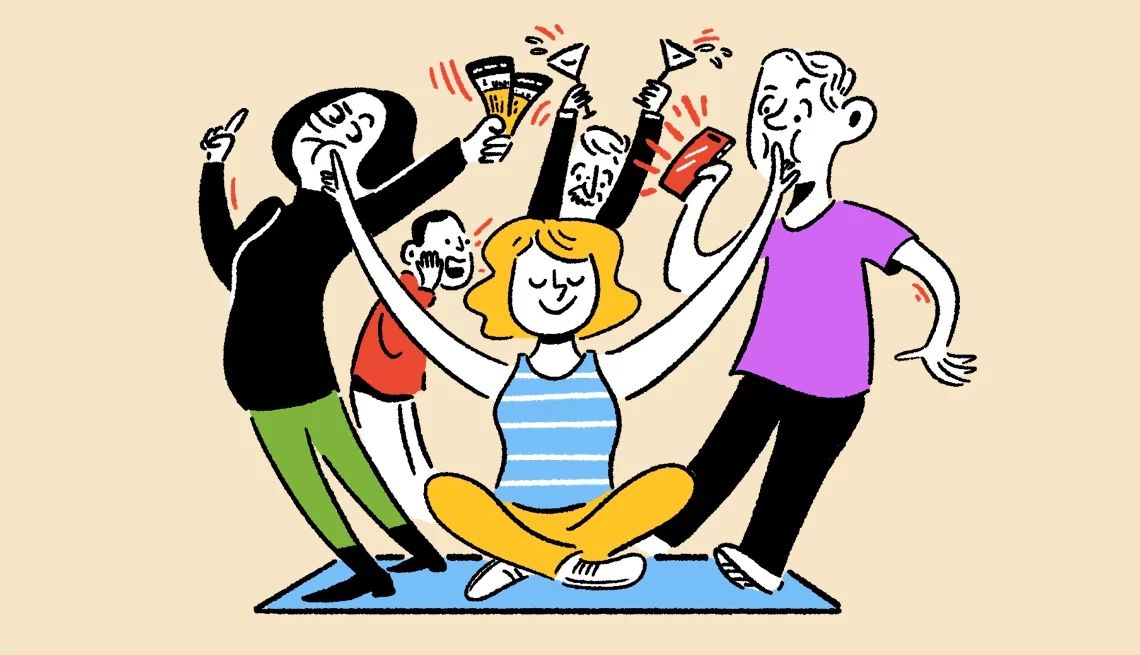
The Health Benefits of the Joy of Missing Out (JOMO)
- Select a language for the TTS:
- UK English Female
- UK English Male
- US English Female
- US English Male
- Australian Female
- Australian Male
- Language selected: (auto detect) - EN
Play all audios:
James Yates Facebook Twitter LinkedIn
Remember the fear of missing out, that anxious sensation that someone, somewhere, was having more fun than you? Well, meet its inverse: the joy of missing out, a.k.a. JOMO. You feel it every
time you’re more relieved than disappointed when your social plans fall through. A free evening, all to yourself? Bring it on!
“JOMO is crucial as you reach your 50s,” according to Tali Gazit, a psychologist who studies social media addictions. “It isn’t just about skipping obligations; it’s about consciously
choosing how to spend your time and energy in ways that nurture your well-being and happiness.” In fact, shifting your social priorities can even improve your health, research shows. Read on
to learn how to boost your JOMO in several common scenarios.
What it is: Your favorite band is coming to town, but the show won’t end till way past your bedtime.
What to do: Before buying tickets, clinical psychologist Marni Amsellem suggests, ask yourself whether it’s something you really want to do. “Listening to our needs is critical for nurturing
our emotional health, which is a key component of healthy aging,” says Amsellem. If you do really want to go, great! But there’s no shame in leaving before it’s over. In your 50s, losing
sleep on a regular basis can put you at risk of a variety of chronic conditions, including diabetes and high blood pressure.
The Facebook blahsWhat it is: You spend a lot of time on social media, but it leaves you feeling depleted and vaguely sad.
What to do: Limit your exposure. Young people aren’t the only ones who get anxiety from comparing their real lives to their friends’ curated social media feeds. A recent study of middle-aged
adults found that they, too, can feel depressed after excessive Facebook scrolling. Try setting a time limit of 30 minutes per day for checking social media, a practice that can reduce
anxiety, depression and fear, according to a 2023 study.